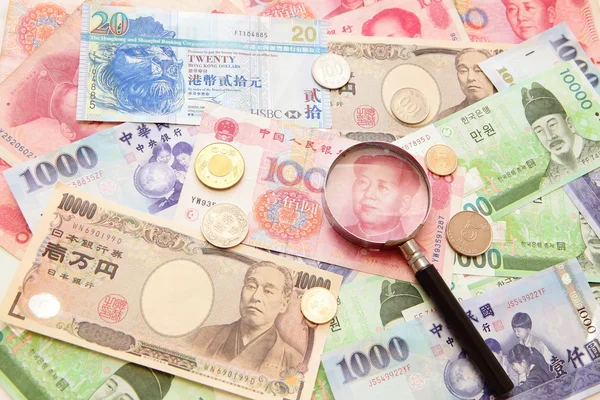What is Corporate Tax?
Corporate tax is a tax levied by a local government on the profits of a corporation. These taxes are required to be paid on that corporation’s taxable income. This includes revenue minus COGS (Cost of Goods Sold), marketing and sales, administrative expenses, research and development, depreciation, and other operating costs.
The rate at which these taxes are applied vary by country and is referred to as the statutory rate. Taxes for corporations in lower may be lowered through the application of various deductions, loopholes, and government subsidies.
Corporate Taxes in Asia
Corporate taxes in ASEAN (Association of Southeast Asian Nations) countries have shown a decrease in their overall average tax rate over the last 15 years. While there are similar trends in East Asia, the East Asian economies are more stable with well developed economies and various tax break opportunities for businesses who wish to explore the region.
Corporations should consider the tax rates, and regulations surrounding it, in the intended country before committing to entering into that market. Understanding these issues can help managers create a useful model for understanding the likelihood of success for their particular business in these markets.
Chinese Corporate Tax Rate
China’s rapid economic expansion over the past half century has been a stellar example of the impact that opening up to global markets can have on a local economy. Today, China is the second largest economy in the world and is on pace to become the largest by 2031 according to Bloomberg.
In China, tax resident enterprises (TRE) must pay corporate income tax (CIT) on their worldwide income. A non-TRE that has no establishment within China is only taxed on income that comes from China. China’s CIT rate is 25%, and there is no local or provincial income tax.
Japanese Corporate Tax Rate
After World War II, the Japanese economy experienced rapid growth (averaging 10% from 1955-1960) that changed Japanese culture and catapulted the country to becoming one of the largest economies on earth. This economic growth, while overall a great benefit for the Japanese people, changed many important aspects of daily life in Japan.
According to PWC, a domestic corporation in Japan is taxed on its worldwide income, while 95% of dividends received for qualifying companies can be excluded from that company’s taxable income. Foreign corporations are taxed only on the income that comes from Japan. Any foreign company that has a permanent establishment (PE) in Japan is liable for taxes exclusively for the income that comes from that PE.
The effective tax rate in Japan will vary depending on the paid-in capital of that particular company. According to KPMG because the enterprise tax liability is deductible, the effective tax rate is less than the total of the statuary rates for the corporation tax, inhabitant’s tax, and enterprise tax. On average, the effective tax rate in Japan is 30.62%.
South Korean Corporate Tax Rate
Corporations residing in South Korea are taxed on their worldwide income, while non-resident corporations with a PE are taxed for only their Korean sourced income. Corporations that do not have a PE and are not residents are usually taxed using a withholding tax on each distinct item of Korean-sourced income. Corporate income tax rates are using a marginal tax rate system. These rates start from 10% for under 200 million KRW and increase incrementally as revenue increases. The effective corporate tax rate in South Korea is 25%.
The developments in urban areas have helped transform the economy and culture. Although it is considered a developed country, it still lags behind other countries in this category.
Taiwan Corporate Tax Rate
Taiwan is also the most technically advanced microchip maker in the world. The country has a competitive manufacturing sector that includes electronics, machinery, petrochemicals, and communication technology products.
Currently, Taiwan has a corporate tax rate of 20%. However, for profit seeking corporations that earn less than TWD 500,000 in taxable income, the rate is lowered to 18% in 2018, 19% in 2019, and 20% in 2020 if taxable income is over TWD 120,000. Resident companies that operate in Taiwan are taxed on the income that they earn from worldwide sales.
Revenue earned from TWD 0-120,000 is tax exempt, with everything earned over that threshold is taxed at a rate of 20%. A non-resident company is taxed on income that is earned from Taiwan sources. A non-resident corporation that has a fixed place of business in Taiwan is taxed similarly to resident companies.
Hong Kong Corporate Tax Rate
Hong Kong is a highly developed free market economy that is characterized by low taxation, mostly free port trade and a well establish international financial market. Apart from the financial role that Hong Kong occupies, it also has a very large and developed services sector, alongside a developed trade industry.
Hong Kong has a corporate tax rate of 16.5%. However, for tax purposes in Hong Kong, corporate residency isn’t relevant for determining tax liability of any legal entity except for in regards to a tax treaty context. Now, under Hong Kong’s domestic tax code, the deciding factors for determining tax liability are whether a corporation is carrying out operations in Hong Kong, and if profits are derived from the operations in Hong Kong.
INS Global in Asia
We have helped more than 600 companies enter new territories around the world. We can help you hire and pay staff all around the world, recruit top talent and invoice clients in another country.
Our experts have the required knowledge of regulations and processes to make your expansion easy. So, get in touch with us today and let our expert consultants help you.


SHARE